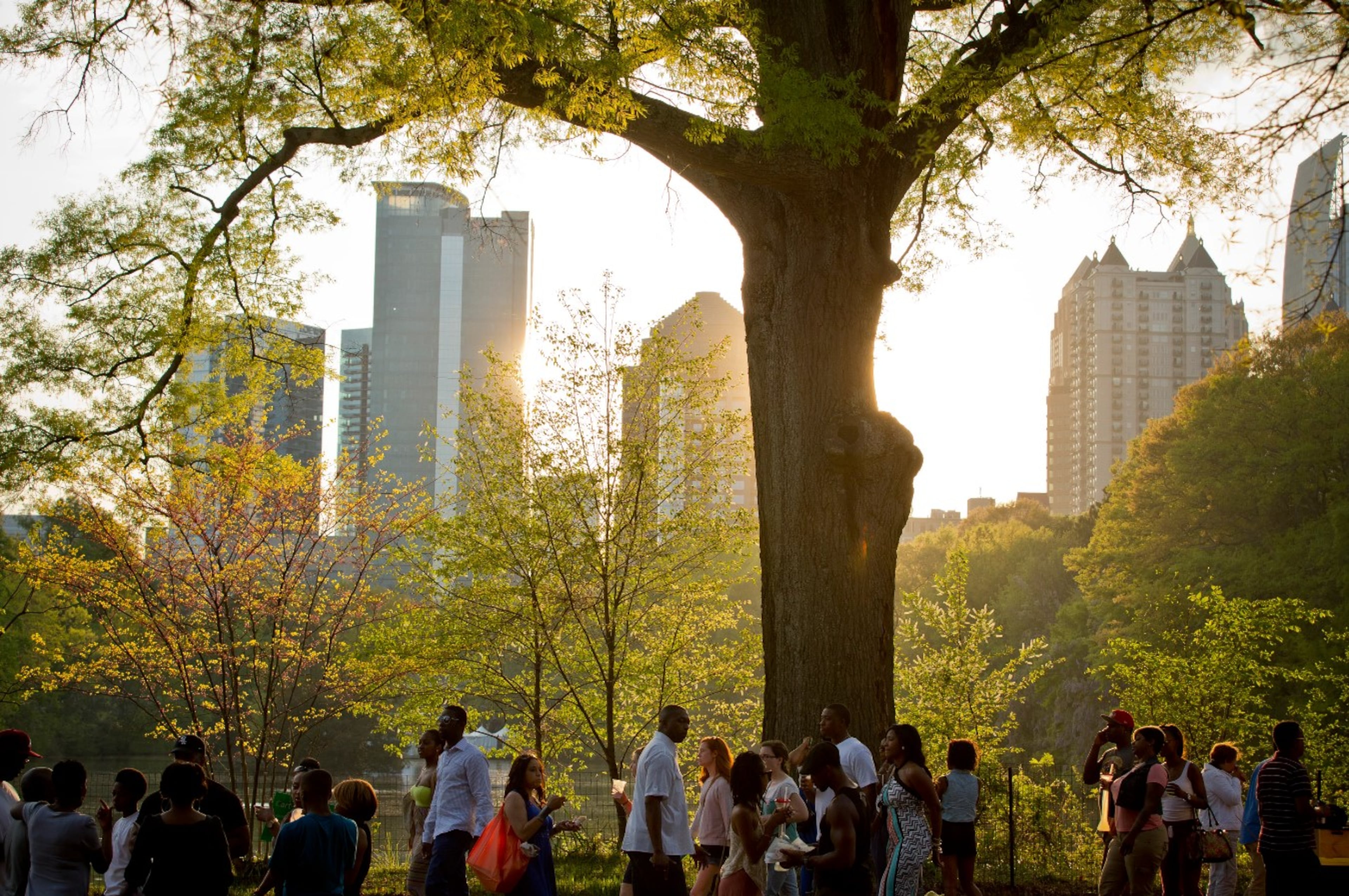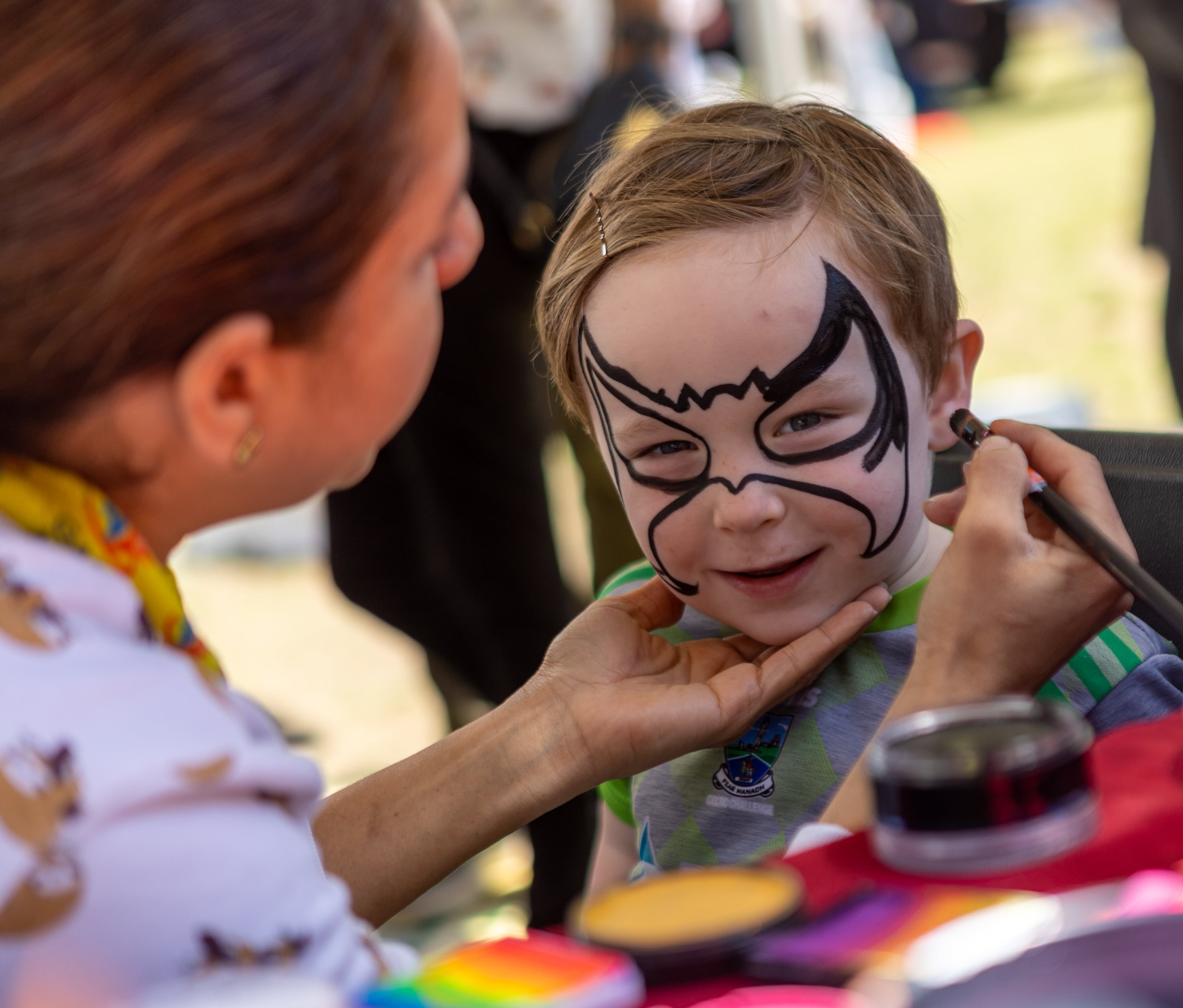Dogwood Festival needs $250K by Nov. 1 or it will have to shutter

The free Dogwood Festival, which draws about 200,000 people a year to Piedmont Park for three days every April, is in a financial bind.
The nonprofit organization has been running in deficit mode since the beginning of the pandemic, which forced the cancellation of the 2020 festival. On Tuesday, it began seeking an additional $250,000 on its website, dogwood.org, from individuals, corporate sponsors and foundations. If it doesn’t raise that amount by Nov. 1, the long-running festival will shutter.
“We used to make a profit every year,” said Brian Hill, executive director since 2008. “But since COVID, costs have gone up 25-30%. That’s labor, security, rentals, staging, all the infrastructure. Festivals are failing around the world.”

Board chairman David Shutley noted the event, which features 250 artists and live music, remains popular and busy: “The patrons love it. The artists love it. It’s a big cultural event for Atlanta. But the financial model is not viable anymore.”
The festival is considering a ticketed model if it can’t pull in enough sponsorship money moving forward.
“It would be a nominal fee like so many arts festivals around the country have had to do,” Hill said.

Sponsors, which typically number 30 every year, shifted dollars during the pandemic to digital marketing and have not brought that money back to live events, he noted. This means a sponsor that once gave $40,000 might offer only $15,000.
“They can quantify and target their customers better online,” Hill said. “For a live event, they only know how many samples they handed out and how many emails they collected.”
Since COVID, the festival has had to sell its office and exhausted its $500,000 in reserves it built up during its salad days. The fundraising effort is a way to find new financial resources and educate the public about the festival’s value.
“We need more community stakeholders,” said Hill, who had planned to retire this year but will postpone his departure while this crisis is being addressed.

The Dogwood Festival is not a big operation. It has only two full-time employees, relying heavily on a coterie of volunteers and paid contractors to handle areas like operations, vendors and security.
According to its 990 financial form it files annually to the federal government, for the fiscal year ending June 30, 2024, the festival generated $903,466 with expenses of $977,109, resulting in a deficit of $73,643.
Over the years Hill has sought fresh ways to generate more income. A 5K Mimosa Run, which began in 2015, has been a success. And in 2018, the festival began charging for VIP hospitality access.
The $250,000 fundraising target, he said, “was a realistic number we came up with after doing a real fiscal deep dive and making multiple cash flow forecasts.”

The festival launched in 1936 during the depths of the Great Depression as a way to highlight the beauty of the city during the blooming of the dogwoods. It was sponsored by local garden clubs and a bevy of public-spirited residents, including Walter Rich, a major Atlanta leader who ran the Rich’s department stores. It featured concerts, a parade, pageants and a carnival.
“We wanted to make Atlanta shine,” Imogene McAfee Buder told The Atlanta Journal and The Atlanta Constitution in 1986 — the papers had not yet merged — during the 50th anniversary of the festival.
The event went dormant in the postwar years of the late 1940s until 1968, when it was adopted by the Women’s Chamber of Commerce. The festival for a time encompassed dozens of events over multiple days in various locations. There were dog shows, balloon races and Easter egg hunts.
By the early 1990s, the festival focused on a single weekend and location: Piedmont Park. That’s where it has stayed since, except for a drought-ridden 2008 when it temporarily decamped to the Lenox Square mall parking lot.
Losing the Dogwood Festival would leave a huge void in the city of Atlanta, said Maria Saporta, a longtime Atlanta resident and former AJC business columnist who runs The Saporta Report.
“It’s one of the most diverse and inclusive festivals in Atlanta,” said Saporta, who has attended the event for decades. “We have seen so many major festivals come and go, like the Atlanta Arts Festival and Music Midtown. I hope this is an opportunity to put the Dogwood Festival on sound economic footing.”
At the same time, Saporta said she would hate to see the festival become a ticketed event.
“Part of its appeal and charm is that it’s free to the public,” she said.
Saporta said she thinks a special separate ticketed event, perhaps with a major music act, could be used as a joint fundraiser between the festival and the Piedmont Park Conservancy, the nonprofit organization that partners with the city to maintain the park.



